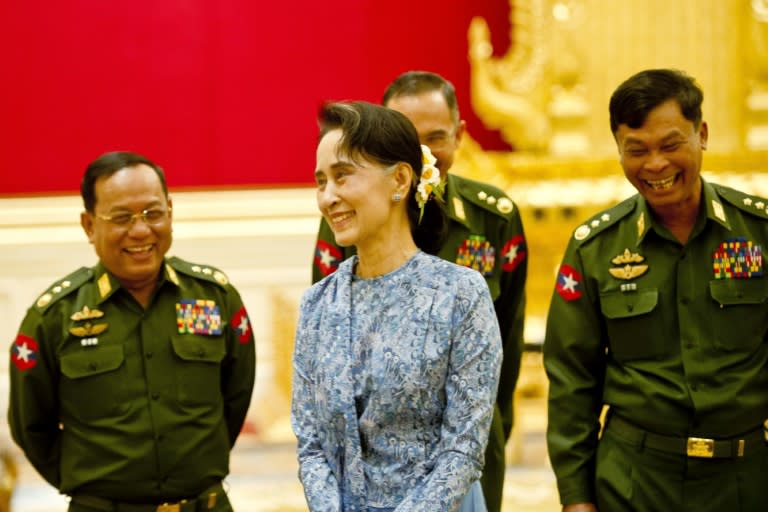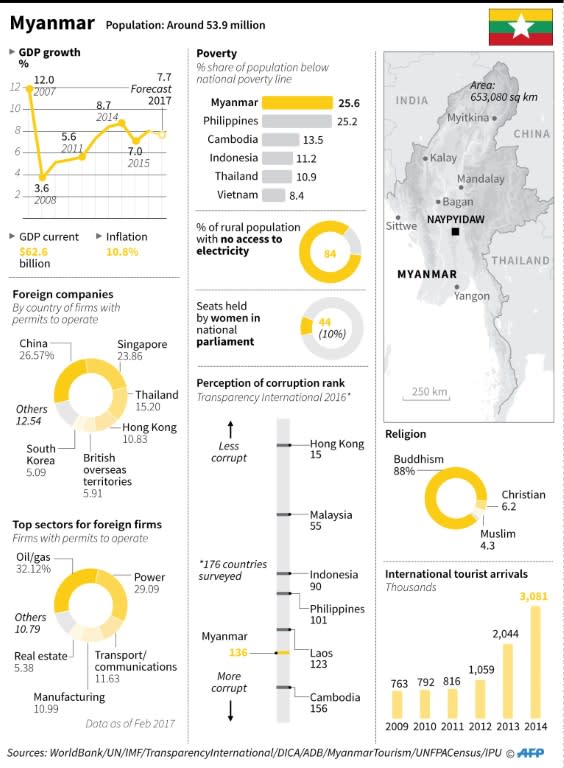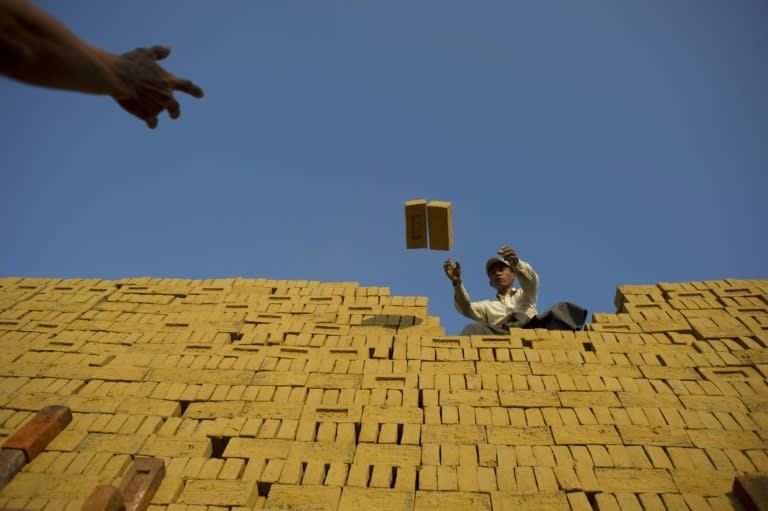Myanmar stumbles on path to democracy under Aung San Suu Kyi
For decades Myanmar's people dreamed of democracy, but a year into office Aung San Suu Kyi's elected government is struggling to revive a sluggish economy and shake off the vestiges of the still powerful military. Swept into power on a wave of optimism and hatred of the generals who ruled for 50 years, Suu Kyi's National League for Democracy (NLD) vowed to boost prosperity and end decades of bloody civil war. But while "The Lady", as she is widely known, still draws widespread personal adoration in many areas of the country, dissenting voices are rising. Suu Kyi cuts an increasingly aloof figure, say analysts, ducking press conferences and remaining silent over a bloody army crackdown on Rohingya Muslims. Her reticence to speak out on the violence in Rakhine state is fast losing her fans among an international community that was once bedazzled by her power as a rights defender. Expectations of what the NLD could achieve in a year governing one of Southeast Asia's poorest countries were unreasonably high, according to Myanmar watchers. But now many are questioning whether the government will ever be able to piece the country back together. "There is a growing sense among the politically engaged urban electorate that the government is not meeting their expectations," said political analyst Richard Horsey, a consultant for the International Crisis Group. "Partly, that is because those expectations were inevitably far too high... but partly it is due to government under-performance." Most MPs have little or no political experience and many spent years languishing in jail under the former junta that gorged itself and its cronies on Myanmar's resources and brutally suppressed dissent. The government is hobbled by a military constitution that bars Suu Kyi from the presidency and guarantees them a quarter of parliament seats -- enough to block any changes. It also gives the army control over the three most important ministries: defence, borders and home affairs. A prominent NLD lawyer who was trying to scrap the charter, Ko Ni, was murdered in broad daylight at Yangon airport in a killing allegedly masterminded by a former military officer. - Debate stifled - Speaking at his funeral, Suu Kyi urged the public to be patient. "For the history of a country, for the history of a government, 10 months or one year is not much," she told the crowd. But many in Myanmar wryly joke that the NLD is just "old wine in a new bottle" -- new packaging for a government that still does not listen to its people. Several of Suu Kyi's flagship policies are already faltering. Growth is slowing and foreign investment is expected to fall for the first time in four years, while double-digit inflation is eating up people's incomes. Political insiders complain Suu Kyi has concentrated too much power in her own hands and is stifling debate within the party. Prosecutions against journalists, satirists and activists under a vague online defamation law have meanwhile surged over the past year -- several brought by NLD members. The Lady has also faced criticism for mishandling peace talks with ethnic insurgents in Myanmar's borderlands, where fighting is at its most intense in decades. Analysts warn that rising anger in ethnic minority areas could see the NLD lose power to local parties in April 1 by-elections. "There was hope that the situation would improve under a new government. But it hasn't, it's even got worse," said veteran Myanmar commentator and author Bertil Lintner. "She's become a fig leaf for continued military rule." - 'Mother Suu' - Internationally, many have been shocked at Suu Kyi's silence over an army crackdown on Rohingya Muslims so brutal UN investigators believe it may amount to crimes against humanity. Last week the UN Human Rights Council agreed to dispatch a fact-finding mission to investigate whether troops had committed atrocities in the north of Rakhine State. The government has rejected the probe, saying it would only "inflame" tensions, and lashed out at those reporting abuses. But despite the new government's teething problems, many still revere "mother Suu" as a saint-like figure who delivered Myanmar from military oppression. "I'm not convinced public discontent is as widespread as often perceived," said Renaud Egreteau, a visiting fellow at the ISEAS-Yusof Ishak Institute, pointing out that the NLD retains strong support in its rural heartlands. Government advisor Aung Tun Thet said it was too early to judge the NLD. "We can't say after a year what the government's performance has been like an exam. We can't say if they have passed or failed," he said.




